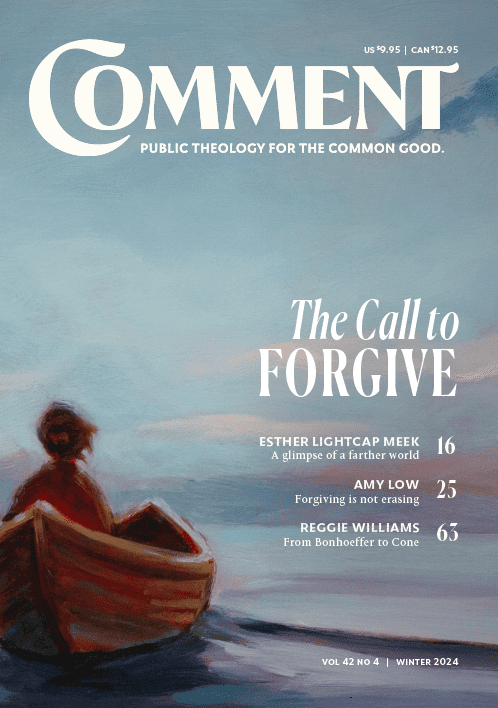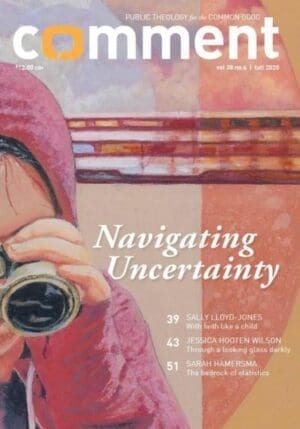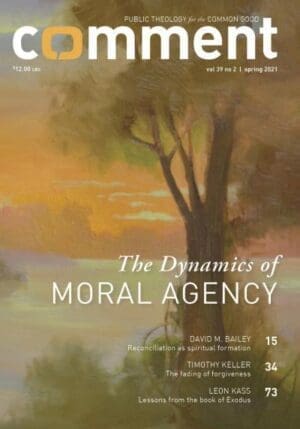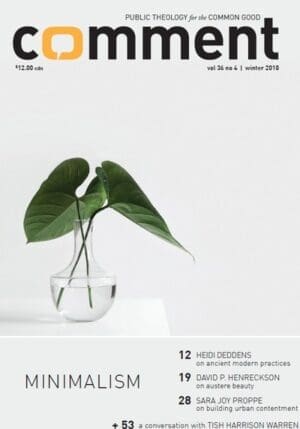Description
Purchase a single copy of our winter 2024 issue. Over the last few years, Comment has heard a certain question recur with curious frequency. This question pops up, usually, in conversation with those who are worried about democracy’s future, who foresee the chances for a truly common life in a pluralist, secular society to be shrinking precipitously, and who are admitting—in different ways depending on whether they see from the right or the left—fatigue with the idea of a future redeemed only in terms of power. That frequently occurring question, often asked in hushed tones and with a certain amount of embarrassment, is this: What if forgiveness is the only checkpoint to a hopeful future?
What a taboo! The acceptable Christian vernacular has expanded into the language of wounds, healing, neighbour-love, repair, and resistance—but forgiveness? The word sounds saccharine, its potency diluted into a brand or disqualified by abuse. We also lack examples of any civic rituals that could serve as a container for its process. Forgiveness is complicated. It is particular. It reeks—in today’s air—of whiteness and luxury, of indifference to very real injustice, its own obnoxious power play.
Still, the late Tim Keller’s Comment essay from 2021, “The Fading of Forgiveness,” is our most-read piece in the history of the magazine. The cultural longing these clicks betray, and the frequency with which we are hearing even the most secular worldviews grasp onto forgiveness as our last best threshold of hope, suggests a need for a fresh scrub of this uniquely Christian command. What might it require to weave the language and practices of forgiveness (back?) into our public life? Is this a task for the church, for individual Christians, or for some more textured civic body? If it’s true that we live in times that are increasingly desperate for a truthful embodiment of costly forgiveness, who is suffering the way?





